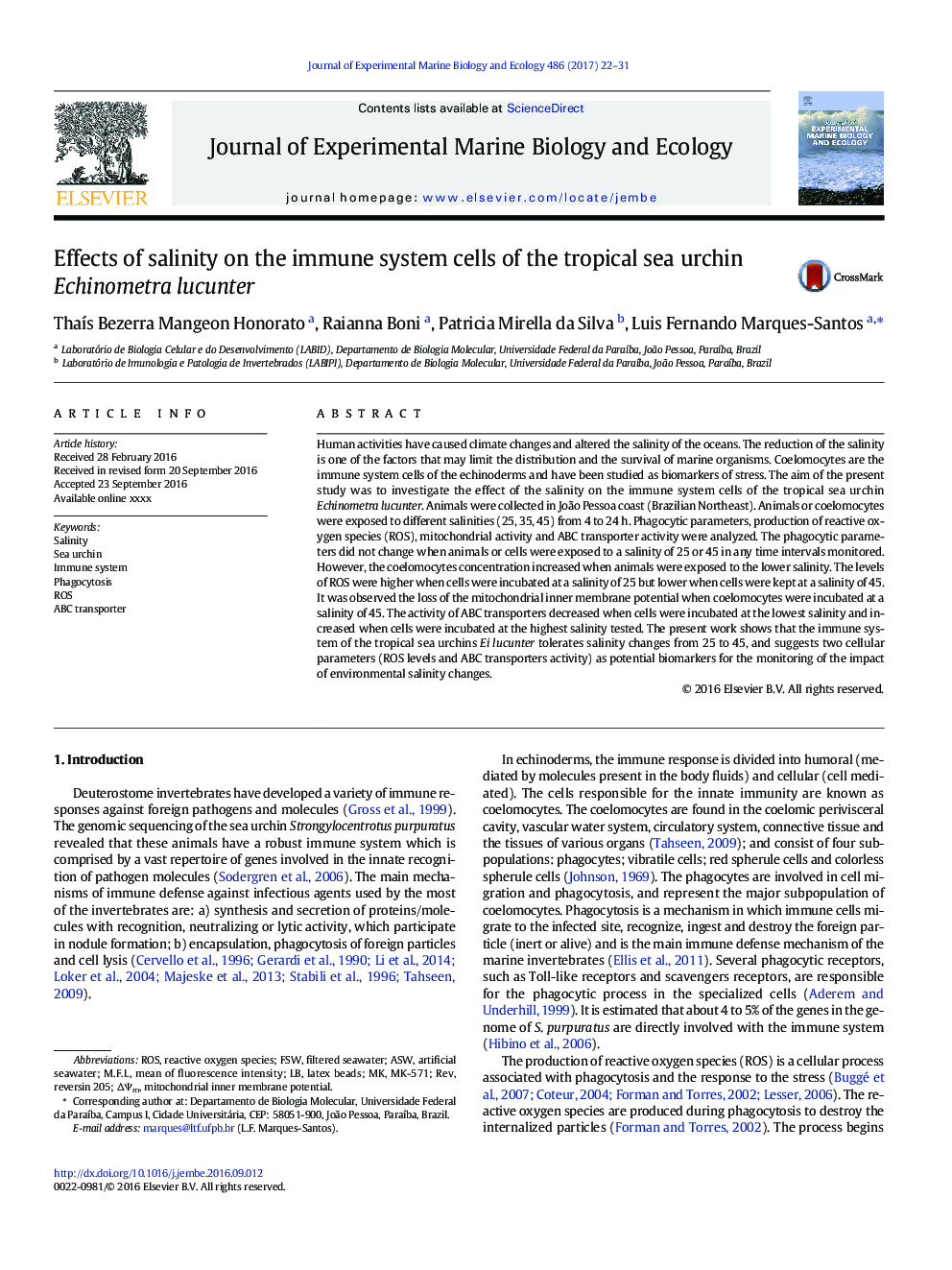| کد مقاله | کد نشریه | سال انتشار | مقاله انگلیسی | نسخه تمام متن |
|---|---|---|---|---|
| 4395162 | 1618389 | 2017 | 10 صفحه PDF | دانلود رایگان |
• Effect of the salinity on sea urchin coelomocytes
• Low salinity increased coelomocytes concentration in the coelomic fluid.
• Salinity altered ROS levels, ΔΨm and ABC transporters activity in coelomocytes.
• Salinity did not affect the phagocytic activity.
Human activities have caused climate changes and altered the salinity of the oceans. The reduction of the salinity is one of the factors that may limit the distribution and the survival of marine organisms. Coelomocytes are the immune system cells of the echinoderms and have been studied as biomarkers of stress. The aim of the present study was to investigate the effect of the salinity on the immune system cells of the tropical sea urchin Echinometra lucunter. Animals were collected in João Pessoa coast (Brazilian Northeast). Animals or coelomocytes were exposed to different salinities (25, 35, 45) from 4 to 24 h. Phagocytic parameters, production of reactive oxygen species (ROS), mitochondrial activity and ABC transporter activity were analyzed. The phagocytic parameters did not change when animals or cells were exposed to a salinity of 25 or 45 in any time intervals monitored. However, the coelomocytes concentration increased when animals were exposed to the lower salinity. The levels of ROS were higher when cells were incubated at a salinity of 25 but lower when cells were kept at a salinity of 45. It was observed the loss of the mitochondrial inner membrane potential when coelomocytes were incubated at a salinity of 45. The activity of ABC transporters decreased when cells were incubated at the lowest salinity and increased when cells were incubated at the highest salinity tested. The present work shows that the immune system of the tropical sea urchins Ei lucunter tolerates salinity changes from 25 to 45, and suggests two cellular parameters (ROS levels and ABC transporters activity) as potential biomarkers for the monitoring of the impact of environmental salinity changes.
Journal: Journal of Experimental Marine Biology and Ecology - Volume 486, January 2017, Pages 22–31
